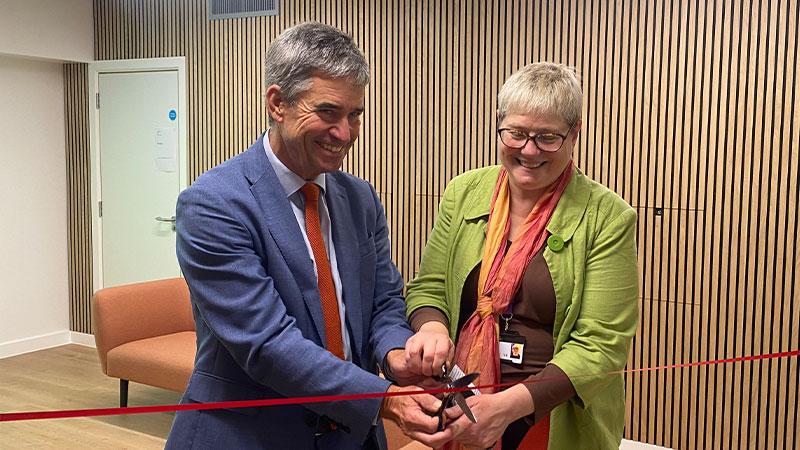On 26 September, the University of Westminster, in collaboration with the Students' Union, officially opened new multi-faith spaces at its Marylebone Campus. The launch event offered the Westminster community an opportunity to explore the facilities and learn how they can benefit from and support these spaces.

The new spaces include two Muslim prayer rooms, ablution facilities and a contemplation area designed for students and colleagues of all faiths and none. All the rooms are furnished with timber finishes, gentle lighting and calming imagery to create an environment of tranquillity, reflection and community. The facilities also include a designated room for Yusuf Kaplan, Westminster’s Interfaith Adviser, who is there to provide pastoral and spiritual support to anyone in need.
At the launch, Caroline Lloyd, Director of Student and Academic Services, welcomed attendees and emphasised the importance of these spaces for the entire Westminster community. Vice-Chancellor and President Professor Peter Bonfield followed by acknowledging the collaborative efforts behind the creation of the rooms. Guests were then invited to explore the new facilities and discover how they can enrich University life.
Partly funded by the Quintin Hogg Trust, the creation of these spaces was a collaborative effort involving professional services, the Students' Union and Westminster students. Together, they worked on the design and planning, ensuring the spaces are inclusive and cater to the diverse needs of the University’s community.
Arjun Ramdhan, a third-year Smart Computer Systems BEng Honours student and President of the Hindu Society, played a key role in supporting the project. He joined the team when Yusef reached out to student societies to gather ideas and insight from across the Westminster community. After responding to the email, he joined the first meeting and went on to attend every planning session from then. Each meeting brought dynamic discussion and Arjun was able to contribute actively to the design and planning of the contemplation rooms, ensuring the needs of his society and other groups were reflected.
About the process he said: “The process has been a positive and collaborative experience. The University’s professional services team was very open to feedback and worked with us closely to develop a space that accommodates different religious practices. I found them proactive in incorporating our suggestions, making sure that the space is inclusive and beneficial for all students.”
He added: “These new contemplation rooms are a significant addition for the student body. For members of the Hindu Society, it provides a dedicated space for prayer, reflection and community gatherings. Beyond our society, it offers a peaceful space where students from all faiths and backgrounds can engage in their spiritual practices, fostering a more inclusive environment on campus."
Caroline Lloyd said: “It has been a delight to work in partnership with UWSU, students and colleagues on this important project and to co-design these facilities to benefit all in our community. They are finished to an exceptional standard and are a testament to our commitment to inclusivity. These spaces provide a peaceful environment for students and colleagues of all faiths and none, fostering a sense of belonging and well-being."
The creation of these spaces directly contributes to the United Nations Sustainable Development Goals (SDG) 3: Good Health and Wellbeing and 10: Reduced Inequalities. Since 2019, the University of Westminster has used the SDGs holistically to frame strategic decisions to help students and colleagues fulfil their potential and contribute to a more sustainable, equitable and healthier society.
Find out more about Faith and Spirituality services at the University of Westminster.








